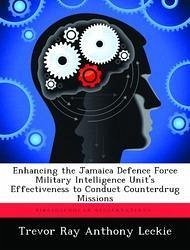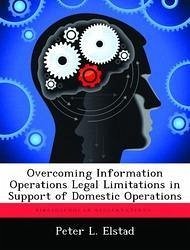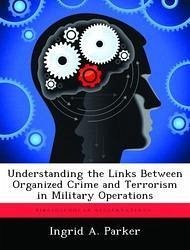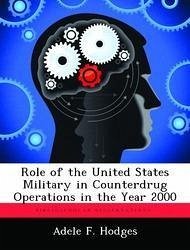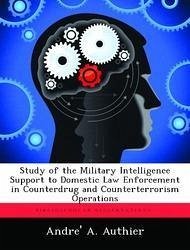
Study of the Military Intelligence Support to Domestic Law Enforcement in Counterdrug and Counterterrorism Operations
Versandkostenfrei!
Versandfertig in über 4 Wochen
53,99 €
inkl. MwSt.
Weitere Ausgaben:

PAYBACK Punkte
27 °P sammeln!
The purpose of the study will address the legal restrictions placed on Title-10 military intelligence support to civilian authorities within the United States conducting counterdrug and counterterrorism operations. The National Defense Strategy calls for the Department of Defense (DoD) to protect the homeland from terrorist attack and to provide support to the civilian interagency in response to natural or man-made disasters. Annual DoD congressional authorizations allow DoD to support drug interdiction efforts, while DoD Joint doctrine states that drug trafficking and terrorism are closely li...
The purpose of the study will address the legal restrictions placed on Title-10 military intelligence support to civilian authorities within the United States conducting counterdrug and counterterrorism operations. The National Defense Strategy calls for the Department of Defense (DoD) to protect the homeland from terrorist attack and to provide support to the civilian interagency in response to natural or man-made disasters. Annual DoD congressional authorizations allow DoD to support drug interdiction efforts, while DoD Joint doctrine states that drug trafficking and terrorism are closely linked. The main issue is DoD's reluctance to fulfill this directive, due to the self-imposed limitations on military intelligence, so that it cannot provide much support to law enforcement within the United States. This creates a problem for DoD in how to make use of its intelligence capacity to fulfill the homeland defense directive when DoD restricts itself from providing intelligence support. The problem from the law enforcement and interagency perspectives is their lack of internal intelligence capacity to adequately protect the homeland. Military intelligence can solve the law enforcement intelligence shortfall issue. If DoD understands that it is legal for them to do so and updates its regulations accordingly, then DoD will benefit as well. Research for this topic conducted from August of 2008 thru June of 2011.





